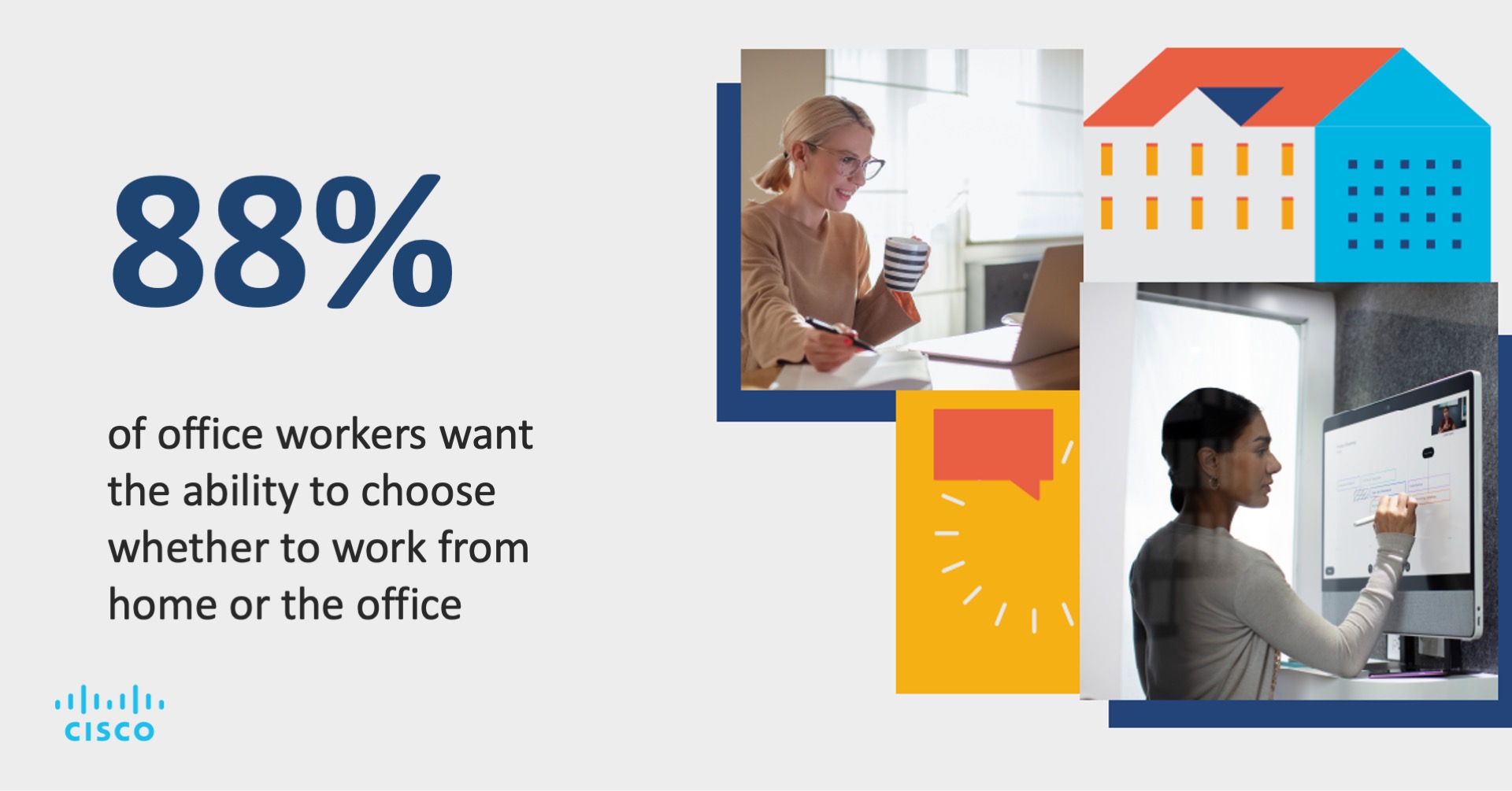One of the key takeaways from 2020 is that remote working has challenged cultural norms around the workplace. To take a pulse of this shift we looked at new research, the Workforce of the Future survey, commissioned by Cisco which surveyed 14,000 respondents across 14 markets in the Asia Pacific on their expectations of employers from 2021 onwards. The survey reveals that only 9.58% of Australian employees surveyed worked from home most of the time before lockdowns and the pandemic.
Now, an overwhelming majority expect to keep this increased autonomy. One size will not fit all, as 88.92% want greater ownership in defining how and when they use office space – blending between being office-based working, and working remotely.
Listening to employees is key to creating experiences that match their needs, and at this point employees want greater ownership and choice in the new world of work. That means greater autonomy over where and how they work, reduced travel and commuting, and the ability to make quicker decisions. The results show that employees see their experience in 2020 as a watershed moment, challenging culture norms around the workplace.
Work is now less about where things get done, and more about how and when work is done, and what that means for ones lifestyle.
Work is now less about the where, and more about the how, when and what it means for one’s lifestyle. Working from home may have been an adjustment at the start of the pandemic lockdown, but according to the research, employees are keen to keep hold of many positives that emerged from this new way of working. Increased autonomy (71.56%) and working well as a dispersed team (69.86%) are two main benefits; plus 69.06% want to keep hold of faster decision-making.
Reflecting on the last six months, three quarters (73.55%) now have a greater appreciation of the benefits and challenges of working from home. Positive changes were afoot, as leaders showed increased trust in their teams to do their jobs well (47.70%). Employees were able to better integrate their work and lives, with 66.97% incorporating more exercise into their daily routine. In a similar spirit, 68.16% want to continue travelling less and use that time more productively.
Challenging cultural norms – accelerating the shift to the hybrid workforce
 Cultural norms that have been shifting for years have been forced to accelerate to meet the increasing needs and expectations of a hybrid workforce, including the escalating need for trust, belonging, safety, wellbeing, inclusion and transparency.
Cultural norms that have been shifting for years have been forced to accelerate to meet the increasing needs and expectations of a hybrid workforce, including the escalating need for trust, belonging, safety, wellbeing, inclusion and transparency.
Employees expect their leaders to provide the technological toolkit and training to help them be productive and engaged when working remotely, and for the technology to keep them safer and more secure at work.
These expectations are consistent with the employee experience and culture we have been journeying toward at Cisco, which has centered on flexible work practices and working in hybrid teams for many years. We continue to craft a culture that is anchored in trust, transparency and inclusivity, that has helped us operate seamlessly throughout the year, and build resiliency with our people. Our ability to apply our technology as an enabler of our culture, and to meet the evolving expectations of our hybrid workforce is one of the reasons we were named the #1 best place to work in Australia in 2020.
The global pandemic has changed how we work, and embedded collaboration into the fabric of our society. If the results of the Workforce of the Future Survey are anything to go by, we won’t be going back – the future of work is hybrid.
Read more about the Workforce of the Future Survey, here.